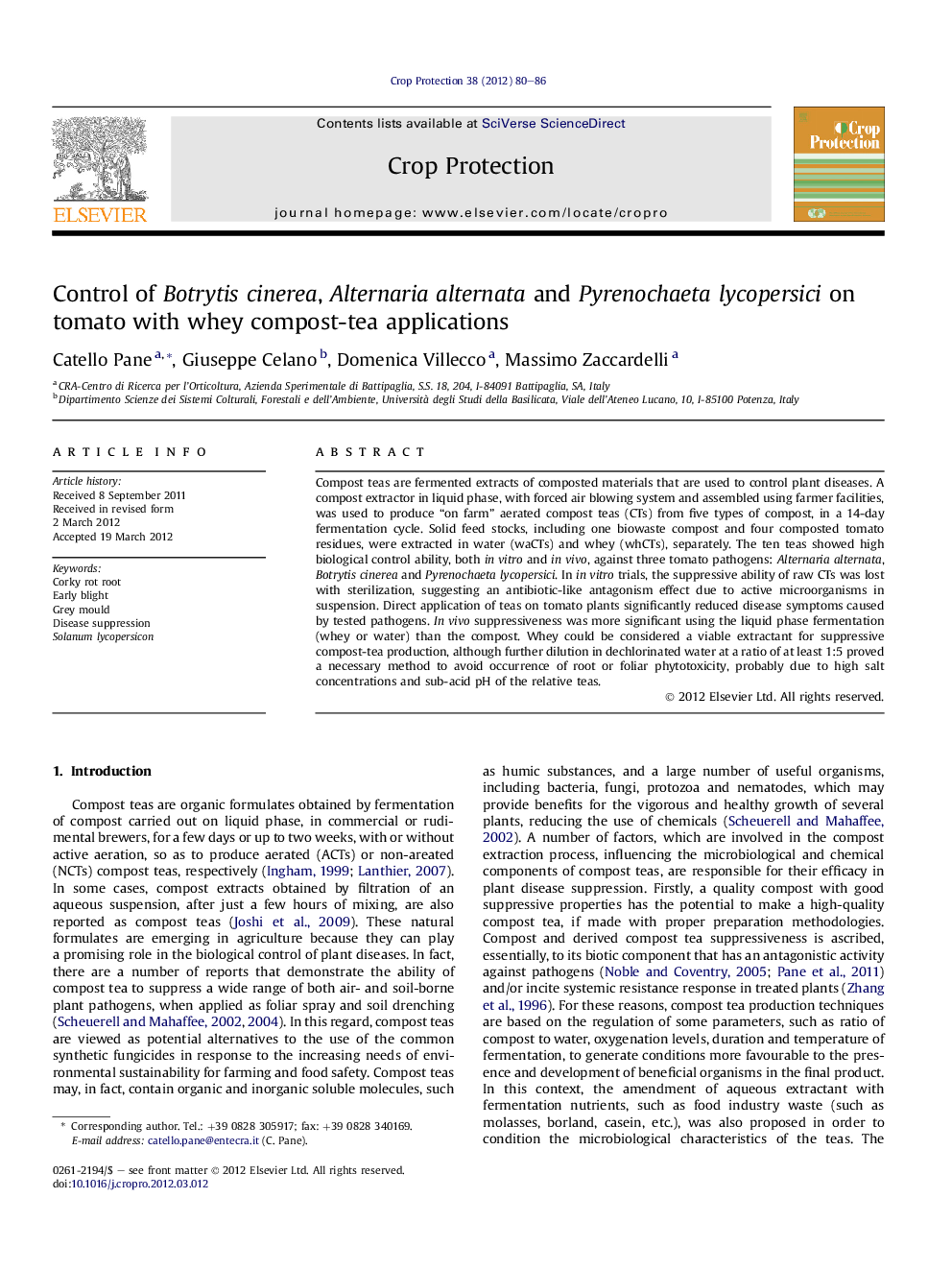| Article ID | Journal | Published Year | Pages | File Type |
|---|---|---|---|---|
| 4506430 | Crop Protection | 2012 | 7 Pages |
Compost teas are fermented extracts of composted materials that are used to control plant diseases. A compost extractor in liquid phase, with forced air blowing system and assembled using farmer facilities, was used to produce “on farm” aerated compost teas (CTs) from five types of compost, in a 14-day fermentation cycle. Solid feed stocks, including one biowaste compost and four composted tomato residues, were extracted in water (waCTs) and whey (whCTs), separately. The ten teas showed high biological control ability, both in vitro and in vivo, against three tomato pathogens: Alternaria alternata, Botrytis cinerea and Pyrenochaeta lycopersici. In in vitro trials, the suppressive ability of raw CTs was lost with sterilization, suggesting an antibiotic-like antagonism effect due to active microorganisms in suspension. Direct application of teas on tomato plants significantly reduced disease symptoms caused by tested pathogens. In vivo suppressiveness was more significant using the liquid phase fermentation (whey or water) than the compost. Whey could be considered a viable extractant for suppressive compost-tea production, although further dilution in dechlorinated water at a ratio of at least 1:5 proved a necessary method to avoid occurrence of root or foliar phytotoxicity, probably due to high salt concentrations and sub-acid pH of the relative teas.
Graphical abstractFigure optionsDownload full-size imageDownload as PowerPoint slideHighlights► A liquid compost extractor, with forced air blowing system was assembled on farm. ► Teas control both in-vitro and in-vivo three dangerous tomato pathogens. ► Tea communities exhibited high control ability with antibiosis-like mechanism. ► Whey can be considerate a viable extractant for suppressive compost-tea production.
